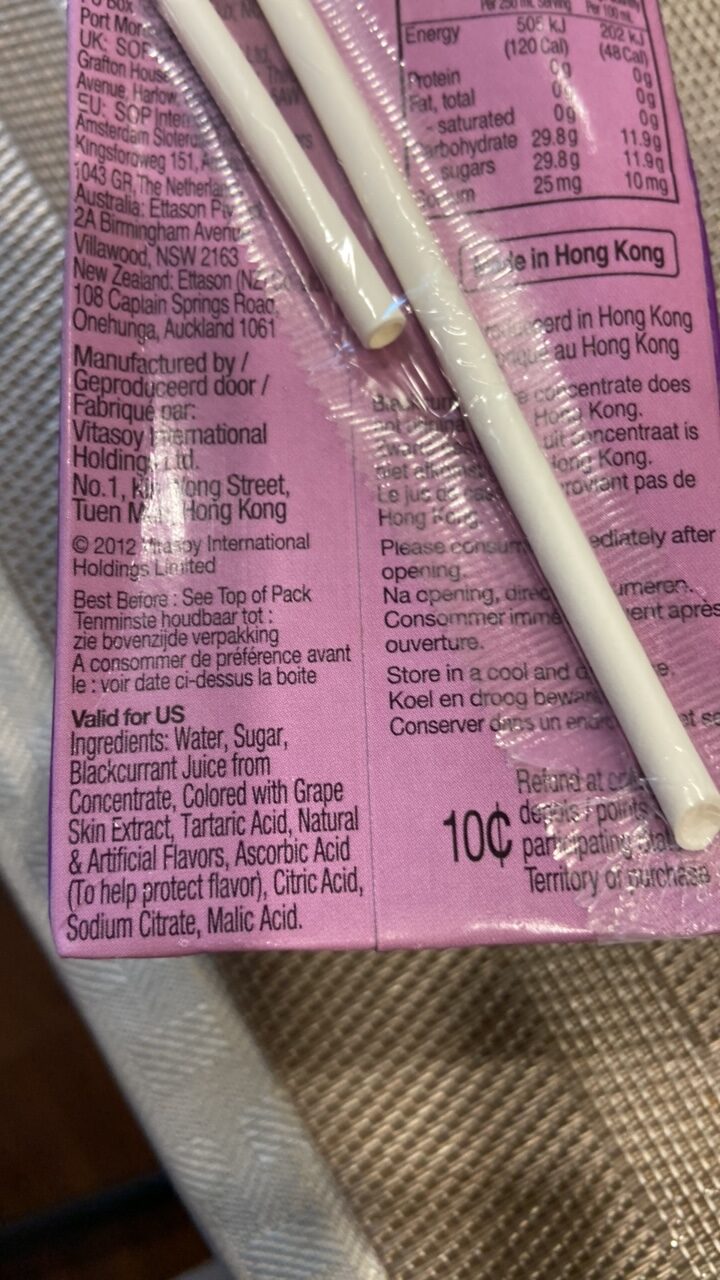
Barcode: 4891028164500
Valid for US
HALAL
📝 Reason: All listed ingredients except ‘natural & artificial flavors’ are Halal according to standard Halal food science references and ingredient origin. The flavors may contain animal or alcohol-based compounds and, without Halal certification or a clear label, their status remains Doubtful (2). Quran 5:3 prohibits consuming Haram items; IFANCA and ingredient reference guides help to verify compliance.
🏷️ Category: Juice
📄 Certificates: 10C, Vegetarisch, Vegan
Ingredients:
Details
Understanding the Halal Status of Valid for US Juice
When it comes to enjoying beverages, many individuals seek assurance regarding their dietary choices, particularly whether a product aligns with halal principles. Today, we’re diving deep into the Halal status of the juice, Valid for US. It is crucial for consumers, especially those following halal dietary laws, to understand every ingredient used in the production process.
What is Halal?
Halal is a term in Arabic that translates to ‘permissible’ in English. In the context of food and beverages, it refers to items that comply with Islamic law as defined in the Quran. According to Quran 5:3, the consumption of Haram (forbidden) items is strictly prohibited. Hence, understanding the Halal status is essential for those adhering to these dietary guidelines.
Ingredient Breakdown
The ingredient list of Valid for US Juice includes:
- Water
- Sugar
- Blackcurrant juice from concentrate
- Colored with grape skin extract
- Tartaric acid
- Natural & artificial flavors
- Ascorbic acid
- Citric acid
- Sodium citrate
- Malic acid
Ingredient Analysis
Let’s examine each ingredient’s Halal status:
- Water: Pure water has no dietary restrictions and is Halal. [Source]
- Sugar: Sugar derived from beet or cane is generally Halal unless processed with animal-derived bone char, which is rare in the US. [Source]
- Blackcurrant juice from concentrate: This fruit juice is Halal unless processed with Haram additives, none indicated here. [Source]
- Colored with grape skin extract: Grape skin extract used as a coloring agent is Halal and poses no known Haram concerns. [Source]
- Tartaric acid: This compound, usually plant-derived from grapes, is considered Halal. [Source]
- Natural & artificial flavors: This ingredient remains a point of concern. They could potentially contain animal or alcohol-derived substances, making their Halal status doubtful without further information or certification. [Source]
- Ascorbic acid: Commonly derived from plant sources, vitamin C is Halal. [Source]
- Citric acid: Often derived from fermentation, citric acid is usually plant-based and Halal. [Source]
- Sodium citrate: The sodium salt of citric acid, typically plant-derived, is Halal. [Source]
- Malic acid: Produced from fermentation, malic acid is widely accepted as Halal. [Source]
The Overall Halal Status of Valid for US Juice
In conclusion, the Valid for US Juice is primarily made up of ingredients that are considered Halal. However, the ambiguity regarding the natural & artificial flavors could pose a concern for strict halal consumers. It is advisable to seek further clarification from the manufacturer or look for Halal certification on the packaging. The juice is categorized under the juice category, and no specific brand is mentioned, but it does carry various certifications such as 10C, Vegetarisch, and Vegan. Consumers dedicated to making halal choices should always remain informed about their food sources and read labels carefully.
